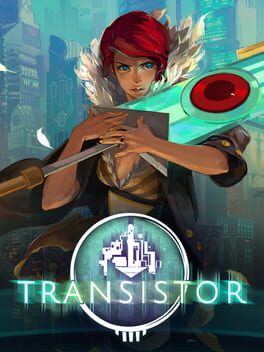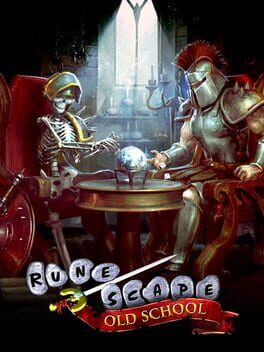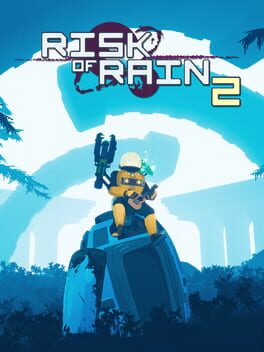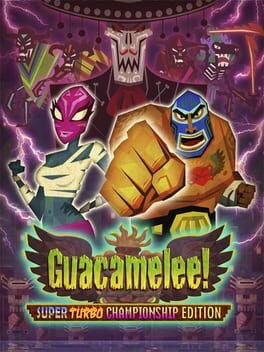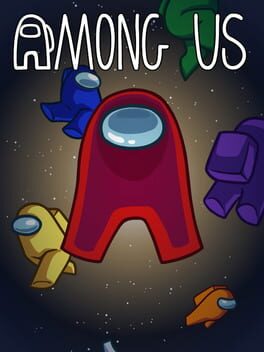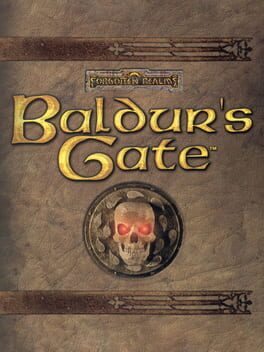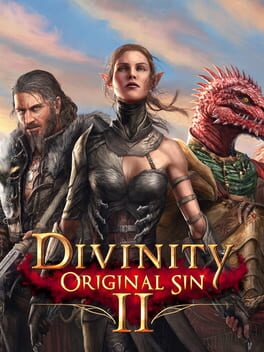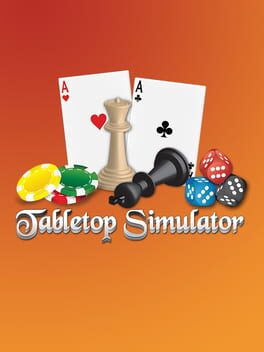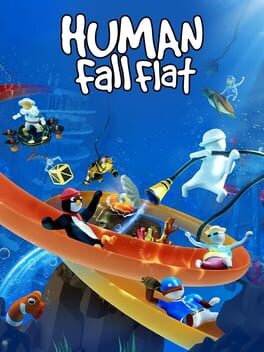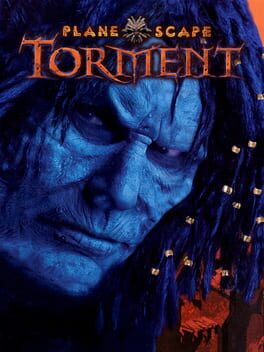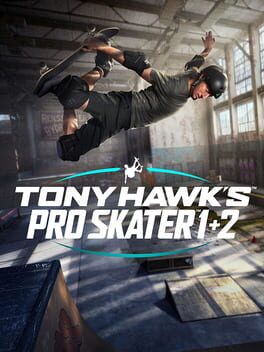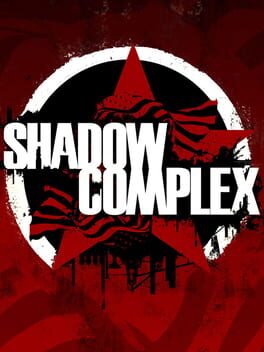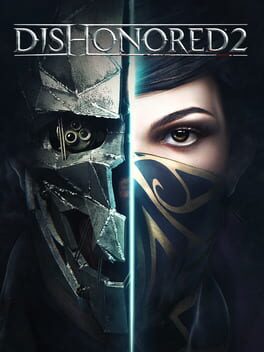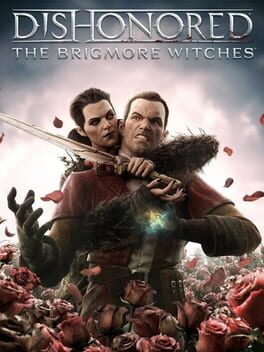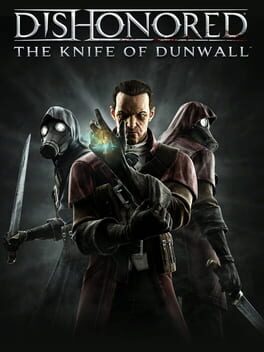synthezoid
2014
2013
Some games don't respect your time. This game breaks your time over its knee and says "life is meaningless, your time never had value, and you were a fool to think otherwise." It's a minimum-wage job with more steps and less pay. Literally the only good this game has ever done the world is put food on the table for some savvy Venezuelans. I won't pretend to think otherwise. (https://www.polygon.com/features/2020/5/27/21265613/runescape-is-helping-venezuelans-survive)
2019
Sensory overstimulation in 3D. How does anyone follow what the fuck is going on in this game? When I play with friends, they always ask me "how'd you die?" and every time I say "I don't know." There's so much visual clutter yet so little feedback that something is suddenly tearing through my health bar. It doesn't even get to be tense because it's so unceremonious. Deaths are never punctuated with a "fuck," but a "huh?" Maybe I'm missing something.
The game worlds are expansive yet repetitive, and largely empty beyond the same enemies spawning over and over again to fill the space. Outside of a few interesting movement options on some characters, traversing it is completely uninteresting. Holding shift to sprint helps, but not enough to stop me from wishing traversal was either faster or significantly more engaging. Any kind of platforming or momentum mechanics, even if it wasn't that much faster, would be more bearable. Anything would be welcome, just to add a basic, functional level of engagement to a game that is otherwise about leisurely walking around the projectiles of enemies thirty feet away to trade them some of your own, or, if you're feeling dastardly and playing the appropriate character, approaching to hit them with your fist.
I also don't understand the baffling choice to start players off with the least fun character. [This was improved by the recent update that lets you pick from two to start--the Huntress is less boring, and her 'replacement' in unlock order, the Bandit, is the most fun I've ever had with this game.] I probably wouldn't have ever picked it back up after my first session if I hadn't unlocked the Loader so quickly. The Loader itself is a missed opportunity--how come only one character gets a grappling hook? They're always the best part of any game, and it would help to rectify the dearth of interesting movement tools other characters have.
Navigation in these big, empty worlds with most characters is a matter of holding W and shooting anything you see along the way. Most of the things you find will only be more enemies to shoot or items that you get to press E on. Nothing truly interesting happens getting from point A to B for 90% of the game, which might not be such a big deal if the path from A to B weren't so long and so padded, or if every character had platforming or momentum-driven mechanics. So far, the Bandit is the only character I've found who makes combat engaging enough in itself to ignore how little is truly happening.
Why don't the items in the three-pronged capsules have descriptions before you buy them? They're the same across runs, it's not like what each item does is a secret. It just wastes new players' time as they guess which item might be relevant to them. Then again, the opportunities to actually choose between items that you get are few and far between. There's very little in the way of personalization or buildmaking. There are instead just a lot of generically useful items stacking on top of each other, which makes only a select few truly memorable. This is exacerbated by the fact that so many basic items will be repeated across runs--your character will end up feeling quite similar from run to run. The whole process feels automatic rather than exciting.
Fighting the same boss multiple times in the same run is hugely anticlimactic--so much so that when I first wrote this, I genuinely worried that I was misremembering that detail, because why would you design a roguelite where the level-end bosses can repeat later on? Sadly, I wasn't. Fighting the same boss twice in twenty minutes sure doesn't help the game to feel more substantial or less padded. In fact, much the opposite. In a genre where you can finish most games from scratch in a few hours (if you're good enough), the fact that anything at all feels like padding is the most telling indictment I can think of.
The game worlds are expansive yet repetitive, and largely empty beyond the same enemies spawning over and over again to fill the space. Outside of a few interesting movement options on some characters, traversing it is completely uninteresting. Holding shift to sprint helps, but not enough to stop me from wishing traversal was either faster or significantly more engaging. Any kind of platforming or momentum mechanics, even if it wasn't that much faster, would be more bearable. Anything would be welcome, just to add a basic, functional level of engagement to a game that is otherwise about leisurely walking around the projectiles of enemies thirty feet away to trade them some of your own, or, if you're feeling dastardly and playing the appropriate character, approaching to hit them with your fist.
I also don't understand the baffling choice to start players off with the least fun character. [This was improved by the recent update that lets you pick from two to start--the Huntress is less boring, and her 'replacement' in unlock order, the Bandit, is the most fun I've ever had with this game.] I probably wouldn't have ever picked it back up after my first session if I hadn't unlocked the Loader so quickly. The Loader itself is a missed opportunity--how come only one character gets a grappling hook? They're always the best part of any game, and it would help to rectify the dearth of interesting movement tools other characters have.
Navigation in these big, empty worlds with most characters is a matter of holding W and shooting anything you see along the way. Most of the things you find will only be more enemies to shoot or items that you get to press E on. Nothing truly interesting happens getting from point A to B for 90% of the game, which might not be such a big deal if the path from A to B weren't so long and so padded, or if every character had platforming or momentum-driven mechanics. So far, the Bandit is the only character I've found who makes combat engaging enough in itself to ignore how little is truly happening.
Why don't the items in the three-pronged capsules have descriptions before you buy them? They're the same across runs, it's not like what each item does is a secret. It just wastes new players' time as they guess which item might be relevant to them. Then again, the opportunities to actually choose between items that you get are few and far between. There's very little in the way of personalization or buildmaking. There are instead just a lot of generically useful items stacking on top of each other, which makes only a select few truly memorable. This is exacerbated by the fact that so many basic items will be repeated across runs--your character will end up feeling quite similar from run to run. The whole process feels automatic rather than exciting.
Fighting the same boss multiple times in the same run is hugely anticlimactic--so much so that when I first wrote this, I genuinely worried that I was misremembering that detail, because why would you design a roguelite where the level-end bosses can repeat later on? Sadly, I wasn't. Fighting the same boss twice in twenty minutes sure doesn't help the game to feel more substantial or less padded. In fact, much the opposite. In a genre where you can finish most games from scratch in a few hours (if you're good enough), the fact that anything at all feels like padding is the most telling indictment I can think of.
2018
Not the first video game to adapt social deduction and traitor mechanics (remember Town of Salem?) popularized by board games like The Resistance (colon Avalon), Battlestar Galactica, and Werewolf/Mafia, but the first to reach this level of mainstream success. I don't entirely understand why this one in particular took off, but I'm not complaining. It's loads of fun even if it isn't perfect. The digital chat will never replace the joy of arguing at a table with your friends about why they're lying (spoiler: you're the one lying), but it works unexpectedly well. A private lobby with friends is obviously better, though there's always someone who breaks it a bit by talking outside of meetings.
The addition of semi-random minigames for crewmates to solve is a strange but surprisingly fun wrench in the gears.
The addition of semi-random minigames for crewmates to solve is a strange but surprisingly fun wrench in the gears.
1998
Yeah so when people say Baldur's Gate is an all-time great RPG that is still a benchmark for writing, atmosphere, memorable characters, and world design, they're actually talking about Baldur's Gate II. This one was a massive leap forward for RPGs, but it's so full of rough edges that the second game and later CRPGs successfully smoothed over that it hardly compares to them. It's also severely padded with repetitive encounters and uninteresting side quests--totally lacking in respect for your time.
What would become a defining element of Bioware's great games to come--the unforgettable companions and the choice-driven conversations the player can have with them--are barely here. Random party banter which lets you flesh out your relationship with them is practically nonexistent (interestingly, except for the new Enhanced Edition characters, which range from bland to neat), which makes the writing feel a bit sparse, especially when so many quests, despite the regular dialogue trees, ultimately devolve into killing a pack of enemies here or a horde of them there. It makes you wonder what your choices really added when it ended up in a similar combat scenario either way--and there are so many similar combat scenarios strewn a bit too liberally throughout the game. This becomes less of an issue in the dense, dialogue-rich city of Baldur's Gate, but it takes so long to get there that the wait doesn't feel justified. Meaningless fights pad too much of the open world and the dungeons, but experience points aren't meted out generously enough to make some of the tough required fights fair or fun if you rush past optional content.
The combat itself isn't a horrible system, but AD&D is simply too much of a slog at low levels--and this entire game is low level AD&D. While the real time with pause fights allow for a blend of strategy (when tougher fights demand planning, timing, and positioning) and speed (when the game throws wads of trash mobs at you to pad a forest or dungeon), it's ultimately one of the weakest parts. Again, it feels better in BG2 (or successors like Pillars of Eternity) simply because you're actually strong enough in that one to have some real power and flexibility, which is where RTWP combat feels the best. It's not horrible here, just a bit of a jumbled mess waiting for refinement. The pathing AI will have you and your companions enthusiastically running to their death, and the encounter design doesn't help to massage out the kinks in the combat. Enemies are frequently loaded with irritating powers like poison and petrification that will inevitably force reloads due to sheer bad luck, even if you bring antidotes or try to weave around them. Even Planescape: Torment, famous for having some of the weakest combat of the Infinity Engine games, was occasionally more fun precisely because it was rarely if ever that hard. Sure, it didn't demand any strategy, but at least you could click on some dudes or run away and it would be over shortly, and what little combat it demanded usually carried narrative weight or at least fit the tumultuous setting. Being tossed into unwinnable fights doesn't demand any strategy because "reload and come back later" or "turn on Story Mode difficulty for this fight" isn't strategy, it's something a Gamefaqs walkthrough tells you to do.
It's not an awful game, and there's a lot to love. It captures the feeling of wandering aimlessly around the Forgotten Realms at low level (complete with encountering Drizzt and Elminster in passing) where everything is dangerous fairly well, but that alone doesn't carry the game, and in fact starts to get tedious and frustrating well before you're done. Everything it does well is done better and sooner in Shadows of Amn. And some will tell you that it's necessary to enjoy its vastly superior cousin, but in my experience, that isn't the case, even if people who stuck with the first seem to have a stronger attachment to the returning characters. I shudder to think how many people in recent years have bought this game, tried it, and put it down when it got too boring, tough, or repetitive, then never tried the second game assuming it was more of the first.
What would become a defining element of Bioware's great games to come--the unforgettable companions and the choice-driven conversations the player can have with them--are barely here. Random party banter which lets you flesh out your relationship with them is practically nonexistent (interestingly, except for the new Enhanced Edition characters, which range from bland to neat), which makes the writing feel a bit sparse, especially when so many quests, despite the regular dialogue trees, ultimately devolve into killing a pack of enemies here or a horde of them there. It makes you wonder what your choices really added when it ended up in a similar combat scenario either way--and there are so many similar combat scenarios strewn a bit too liberally throughout the game. This becomes less of an issue in the dense, dialogue-rich city of Baldur's Gate, but it takes so long to get there that the wait doesn't feel justified. Meaningless fights pad too much of the open world and the dungeons, but experience points aren't meted out generously enough to make some of the tough required fights fair or fun if you rush past optional content.
The combat itself isn't a horrible system, but AD&D is simply too much of a slog at low levels--and this entire game is low level AD&D. While the real time with pause fights allow for a blend of strategy (when tougher fights demand planning, timing, and positioning) and speed (when the game throws wads of trash mobs at you to pad a forest or dungeon), it's ultimately one of the weakest parts. Again, it feels better in BG2 (or successors like Pillars of Eternity) simply because you're actually strong enough in that one to have some real power and flexibility, which is where RTWP combat feels the best. It's not horrible here, just a bit of a jumbled mess waiting for refinement. The pathing AI will have you and your companions enthusiastically running to their death, and the encounter design doesn't help to massage out the kinks in the combat. Enemies are frequently loaded with irritating powers like poison and petrification that will inevitably force reloads due to sheer bad luck, even if you bring antidotes or try to weave around them. Even Planescape: Torment, famous for having some of the weakest combat of the Infinity Engine games, was occasionally more fun precisely because it was rarely if ever that hard. Sure, it didn't demand any strategy, but at least you could click on some dudes or run away and it would be over shortly, and what little combat it demanded usually carried narrative weight or at least fit the tumultuous setting. Being tossed into unwinnable fights doesn't demand any strategy because "reload and come back later" or "turn on Story Mode difficulty for this fight" isn't strategy, it's something a Gamefaqs walkthrough tells you to do.
It's not an awful game, and there's a lot to love. It captures the feeling of wandering aimlessly around the Forgotten Realms at low level (complete with encountering Drizzt and Elminster in passing) where everything is dangerous fairly well, but that alone doesn't carry the game, and in fact starts to get tedious and frustrating well before you're done. Everything it does well is done better and sooner in Shadows of Amn. And some will tell you that it's necessary to enjoy its vastly superior cousin, but in my experience, that isn't the case, even if people who stuck with the first seem to have a stronger attachment to the returning characters. I shudder to think how many people in recent years have bought this game, tried it, and put it down when it got too boring, tough, or repetitive, then never tried the second game assuming it was more of the first.
I've only beaten this once, but I've escaped Fort Joy at least five times, both solo and with different groups. That should tell you how much I enjoy the game mechanically to be excited to start the campaign over that many times on a whim, but it should also tell you how little thrust the story elements have that it took me so long to beat it just once. It's one of the only CRPGs where I'm never disappointed to see a dialogue end with combat--it's just that fun. This works especially well in multiplayer, since there's not as much pressure to save scum for the easy route when fighting your way out of a tough situation is so satisfying.
And even outside of combat, there are some fun ways to use your party's powers to solve problems. Once, we were on a quest to kill a particular man, but doing so would anger all his cohorts and start a bloody, messy brawl that we didn't want any part in. So what did we do? We used a ring of teleportation to zap him out of anyone else's sight and pummeled him in a back alley. The game is full of little things like that which most other games would script or invisible-wall you out of doing, and that's where it shines. In fact, the world is often designed with this in mind, so when you can't simply cheese your way around an obstacle, pains have clearly been taken to make it feel like a natural part of the world rather than an arbitrary roadblock or limitation. Though the dialogues and non-companion characters tend not to get very deep, they're fun and functional enough to keep the rest of the game shiny and smooth.
This, in turn, makes me a lot less interested in the capital-R Role-playing--playing as a custom character gives you strictly fewer dialogue options than the pre-made "origin" characters (think playable companions), whereas I've retained very little sense of the values, history, or personality of my custom characters--but that doesn't stop me from getting joyfully lost in its immersive-sim-esque creativity. If Larian's upcoming Baldur's Gate 3 steps up the writing and atmosphere but retains the absolutely stunning way this game latches into my brain when I play it, it'll be an all-time great. Maybe this one already is.
[edit from 2023: oh BG3 is really good lol]
And even outside of combat, there are some fun ways to use your party's powers to solve problems. Once, we were on a quest to kill a particular man, but doing so would anger all his cohorts and start a bloody, messy brawl that we didn't want any part in. So what did we do? We used a ring of teleportation to zap him out of anyone else's sight and pummeled him in a back alley. The game is full of little things like that which most other games would script or invisible-wall you out of doing, and that's where it shines. In fact, the world is often designed with this in mind, so when you can't simply cheese your way around an obstacle, pains have clearly been taken to make it feel like a natural part of the world rather than an arbitrary roadblock or limitation. Though the dialogues and non-companion characters tend not to get very deep, they're fun and functional enough to keep the rest of the game shiny and smooth.
This, in turn, makes me a lot less interested in the capital-R Role-playing--playing as a custom character gives you strictly fewer dialogue options than the pre-made "origin" characters (think playable companions), whereas I've retained very little sense of the values, history, or personality of my custom characters--but that doesn't stop me from getting joyfully lost in its immersive-sim-esque creativity. If Larian's upcoming Baldur's Gate 3 steps up the writing and atmosphere but retains the absolutely stunning way this game latches into my brain when I play it, it'll be an all-time great. Maybe this one already is.
[edit from 2023: oh BG3 is really good lol]
2015
A shockingly functional engine for playing a lot of great games, but it's not really a game.
For reference, here's an overlong list of some of my favorite tabletop games that are available on here:
7 Wonders: Duel
A Feast for Odin
Aeon's End
Arboretum
Azul
Battle Line
Blokus (and Blokus Duo)
Brass: Birmingham
Carcassonne (one of them has fully automated placement and scoring--it's beautiful)
Concordia
Dominion
Inis
Marvel Champions
Modern Art
Navegador
Onitama
Orleans
Shogi
The Castles of Burgundy
The Grizzled
The King is Dead
The Quest for El Dorado
The Resistance: Avalon
The Voyages of Marco Polo
Tigris and Euphrates
Yokohama
Be sure to buy and support your favorite board games if you try them on here.
For reference, here's an overlong list of some of my favorite tabletop games that are available on here:
7 Wonders: Duel
A Feast for Odin
Aeon's End
Arboretum
Azul
Battle Line
Blokus (and Blokus Duo)
Brass: Birmingham
Carcassonne (one of them has fully automated placement and scoring--it's beautiful)
Concordia
Dominion
Inis
Marvel Champions
Modern Art
Navegador
Onitama
Orleans
Shogi
The Castles of Burgundy
The Grizzled
The King is Dead
The Quest for El Dorado
The Resistance: Avalon
The Voyages of Marco Polo
Tigris and Euphrates
Yokohama
Be sure to buy and support your favorite board games if you try them on here.
2016
1999
2009
A criminally underrated and underplayed Metroidvania with some of the coolest sequence-breaking tools around. The story and presentation are as 2009-Xbox-exclusive as it gets (and tied into an Orson Scott Card novel, of all things), but you'll forget about all of that once you start playing with the foam gun.
2016
Everything Dishonored aspired to be, Dishonored 2 just is.
It's better than the first without ever losing sight of what made the first work. Possibly Arkane's finest game--though Prey is up there too--but it's not well-optimized. Still, the level design is some of the best I've ever seen, and it kept me playing through the occasional stuttering and frame drops.
Speaking of level design, wow. That's all I'll say about that. There are a couple levels that'll blow you away conceptually, and the rest will probably blow you away with how sophisticated and engrossing they are. I found myself excited to get lost and hunt down every trinket I could see in a way that the first game--and most games--often failed to make me. Wow.
Importantly, this game offers an even more exciting toolkit than before--two, in fact, since you can choose Emily or Corvo, both of whom have some exciting possibilities for any playstyle. It's a much less simplistic affair this time around if you're going for a nonlethal run (like I often try to), since the possible solutions are cranked up tenfold with all the different abilities on display, and the levels feel even more branching and liberating to compensate. Don't be fooled into thinking this means it'll be easy, though. I played on Hard and found it a tough but fair challenge (a marked step up from the equivalent difficulty in Dishonored 1), since the stronger and more varied tools at your disposal are constantly matched up against new and exciting puzzles, obstacles, and enemies each level. Dishonored 1 had a few too many invisible walls and a few too few solutions to a lot of problems to compete with the best immersive sims, leading to it either being so easy that it felt frictionless or, in rare moments, a bit frustrating. This game, however, ticks every box I want. I look forward to going back someday to play it a totally different way, which is perhaps the highest praise an immersive sim can get.
While many fans compare this game's story unfavorably to the first, personally it worked better for me--though neither of them got me too emotional, I found myself more invested in what would happen by the end of this one, even if it resorts to the same basic high/low chaos binary as before. The returning characters from the original game and its stellar DLC helped build attachments to some NPCs who didn't do as much the first time around.
All in all, it's Dishonored, but more, and better. It's Arkane at their best, and few do it like Arkane.
It's better than the first without ever losing sight of what made the first work. Possibly Arkane's finest game--though Prey is up there too--but it's not well-optimized. Still, the level design is some of the best I've ever seen, and it kept me playing through the occasional stuttering and frame drops.
Speaking of level design, wow. That's all I'll say about that. There are a couple levels that'll blow you away conceptually, and the rest will probably blow you away with how sophisticated and engrossing they are. I found myself excited to get lost and hunt down every trinket I could see in a way that the first game--and most games--often failed to make me. Wow.
Importantly, this game offers an even more exciting toolkit than before--two, in fact, since you can choose Emily or Corvo, both of whom have some exciting possibilities for any playstyle. It's a much less simplistic affair this time around if you're going for a nonlethal run (like I often try to), since the possible solutions are cranked up tenfold with all the different abilities on display, and the levels feel even more branching and liberating to compensate. Don't be fooled into thinking this means it'll be easy, though. I played on Hard and found it a tough but fair challenge (a marked step up from the equivalent difficulty in Dishonored 1), since the stronger and more varied tools at your disposal are constantly matched up against new and exciting puzzles, obstacles, and enemies each level. Dishonored 1 had a few too many invisible walls and a few too few solutions to a lot of problems to compete with the best immersive sims, leading to it either being so easy that it felt frictionless or, in rare moments, a bit frustrating. This game, however, ticks every box I want. I look forward to going back someday to play it a totally different way, which is perhaps the highest praise an immersive sim can get.
While many fans compare this game's story unfavorably to the first, personally it worked better for me--though neither of them got me too emotional, I found myself more invested in what would happen by the end of this one, even if it resorts to the same basic high/low chaos binary as before. The returning characters from the original game and its stellar DLC helped build attachments to some NPCs who didn't do as much the first time around.
All in all, it's Dishonored, but more, and better. It's Arkane at their best, and few do it like Arkane.
A rousing conclusion to Daud's DLC that includes a couple of my favorite missions in the game. It took time, but Arkane manages to up the ante with the DLC by improving and increasing the player's arsenal, particularly with a new selection of nonlethal options and a great set of levels in which to use them. Bone charms are also made much less boring by the inclusion of more powerful ones--with drawbacks, of course--that reward the player for specializing if they so choose. Maybe I'm imagining things, but I also felt like it relied less on objective markers holding the player's hand, particularly for side missions, which helps it feel more freeing than the base game, which often felt a bit too easy and frictionless--sure, you could explore and find some secrets, but you could just as often do some blinking to the next objective marker with minimal exploring and be on your merry way with little trouble, and as a result, little investment in the level, despite how well it may have been designed.
More toys, more tools, improvements to the ones already present, and levels at least on par with the main campaign make Daud's DLC a tighter and tauter experience that feels like what the main campaign could've been with a little more time in the oven. It also gets a hell of a lot of credit for doing (spoiler!) the impossible: making a boss fight work in an immersive sim. It's not super challenging, but it's a satisfying climax.
By forcing Daud to be the queen's assassin before the player ever gets control, then letting you choose how he develops, the high chaos and low chaos routes both add interesting stakes in the form of a tangible character arc. It's still shaped by your choices, but it lends weight to Daud's redemption or descent no matter how the player chooses to play, which is frankly brilliant.
More toys, more tools, improvements to the ones already present, and levels at least on par with the main campaign make Daud's DLC a tighter and tauter experience that feels like what the main campaign could've been with a little more time in the oven. It also gets a hell of a lot of credit for doing (spoiler!) the impossible: making a boss fight work in an immersive sim. It's not super challenging, but it's a satisfying climax.
By forcing Daud to be the queen's assassin before the player ever gets control, then letting you choose how he develops, the high chaos and low chaos routes both add interesting stakes in the form of a tangible character arc. It's still shaped by your choices, but it lends weight to Daud's redemption or descent no matter how the player chooses to play, which is frankly brilliant.
Really just the first half of the DLC story, but a solid first half. Starts introducing more options and powers, including some more nonlethal avenues. Brigmore Witches sees this through even further, making the DLC rival--and likely surpass--the already solid main campaign. Based on the constant improvement in this game and the massive success of their later Prey, I'm very excited to see how Dishonored 2 develops the gameplay they were starting to refine with the first Dishonored.
